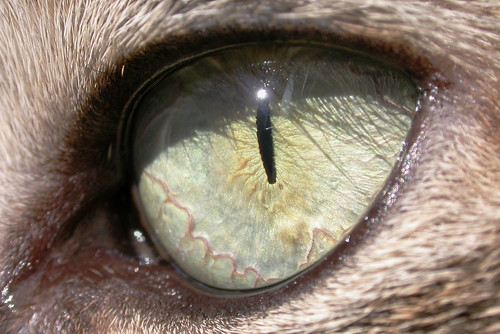Thursday, August 27, 2009
3D Worlds are Annoying!
Maybe it is just me who thinks this. I can understand that there are people out there who would spend time in these virtual worlds. They might see it as entertaining because they can explore a make believe world with their friends and escape from reality, but I think it takes away from decent conversation. I would keep getting distracted by the characters and other things in the virtual world. For me personally, the 3D worlds don't make much difference to social interactions. The creators of virtual worlds may want to think that their creations are going to lead to something more like virtual communities that can have some sort of significant influence. I, personally, cannot see this happening. If it did, how sad and depressing for those who are involved in it. Why try and live a life in a virtual world when you already have the ability to live a life in the real world.
Week 5 Lecture Summary - Internet Studies & Web 2.0
This week's lecture discussed 'New Media' and 'Internet Studies'. New Media incorporates virtual community and individual identity and Internet Studies incorporates web 2.0 and social media. A virtual community is described by Rheingold (1993), as public discussions that occur long enough to form relationships. The conversations involve human emotion and feeling. Individual identity on the internet is seen as people experimenting by reconstructing their identities and re-creating self (Turkle, 1995). On the internet people don't have to be themselves, they can be whoever they want to be. This can cause danger for young kids on the internet who are targets for pedophiles. The internet can be a dangerous place, but we can't let that take away the good things it has to offer.
The early stages of the internet provided a place where people in different geographical locations could share their similar interests. There has been more of a shift, in the introduction of web 2.0, to making the individual the common thread. Web 2.0 emphasises the user experience. With the introduction of tagging and user based content, the internet has become more about the individual. It is now about community and collaboration. This is evident in the popularity of sites like Facebook, Myspace and Twitter. These social communities give internet users opportunities to collaborate with their friends via photos, discussions, IM and various posting functions.
The majority of people using Facebook, for example, would already know those they are communicating with online. On the other hand, people using Twitter tend to follow people they don't know like celebrities or politicians. Although, you can still follow people you know it may not seem as exciting or interesting.
Tuesday, August 25, 2009
Search Engines...
They follow a set of rules, known as an algorithm. One of the the main rules in a ranking algorithm involves the location and frequency of keywords on a web page - http://searchenginewatch.com/2167961
Who, or what, makes one page (that you might get in your search results) more useful than another one, so that it is put at the top of your search results?
The frequency that the keywords in your search appear on that particualr page. This follows the the location and frequecy rule mentioned above.
What are some of your favourite search engines? why do you like one more than others?
I like using Google mainly becuase it is simple. The main page doesn't bombard you with other content and advertisments like msn search does. Answers.com is another favourite of mine. It is entertaining to ask random questions to see if it knows the answer. It is particularly useful when you need to find an answer quickly. A good feature of this site is being able to post your question so others on the web can see answer it. There are some questions even answers.com cannot answer...
The Scavenger Hunt
Gas Mask - yahoo.com
2. On what date did two computers first communicate with each other? Where were they?
In 1969 the "US Government, DoD (Department of Defense to be specific) developed ARPANET. They use this technology to allow various computers within different sections of the military and government that work on different systems to share information with one another. This is the first network. By the end of 1969, four host computers were connected together into the initial ARPANET. These computers were located at 4 colleges: UCLA, Stanford, University of California, and University of Utah. Within 2 years, there were 23 nodes of this network including MIT, NASA, and Harvard. The beginning of the Internet was seen by 1971. By 1972, ARPA is renamed DARPA". - http://www.web-friend.com/help/general/pc_history.html
3. What is Bill Gates’ birthday and what age was he when he sold his first software?
28th october 1955 - answers.com. He was 15 when he sold his frist software. - msn search.
4. Where was the World Wide Web invented?
at CERN (the European Organization for Nuclear Research), in Switzerland. - Altavista.com
5. How does the power of the computer you are working on now compare with the power of a personal computer from 30 years ago? 30000 times more powerful.
6. What is the weight of the largest parsnip ever grown? 8 pounds.
7. When did Queensland become a state and why is the Tweed River in New South Wales?
8. What was the weather like in south-east Queensland on 17 November 1954?
Cylone, Raining and flooding.
9. Why is Lord Byron still remembered in Venice?
Lord Byron is remembered for having affairs.
10. What band did Sirhan Chapman play in and what is his real name?
Sirhan Chapman played in the Black Assassanins and his real name is Stephen Stockwell - The lecturer. Answer found using altavista.com
Using New Communications Technologies
I have had a Facebook account now for just over a year and my neglected Myspace account would be about three years old. I cannot actually remember how or why I jumped onto Mysapce to begin with. It was possibly influence from friends. I wonder if I had never entered into the Myspace revolution,would I have started using Facebook? Possibly not. So Myspace was useful for something in my current cyber socialising life. I communicate with most of my friends on Facebook regualrly and have broardened my social networks by becoming friends with friends of friends and so on. Sites like Facebook allow you to network with people on a much wider scale than traditionally or physically. It is more accessible, which is no wonder it is so popular today.
I am not constantly thinking about privacy issues when using Facebook, but the thought does linger in the back of my mind. I am sensible in my use of the social networking site and have deleted or blocked people who I was suspicious of. There is a risk in using the site and I am aware of that. Though, there is a risk asscociated with most things in life. Driving on the road could be seen as being more risky than chatting to friends on Facebook. I, personally, only talk to my friends whom I already knew prior to facebook. I don't pursue cyber relatioships with random people. The only instance of this would be if they were a friend of a friend. Even still I probably wouldn't talk to them a whole lot.
Tuesday, August 18, 2009
Cine-Speak



Other topics included 'Shots as Words'. The who? what? where? when? why? and how? These shots display the answer to these questions. Explaining the answer to the who, for example, may involve a shot of the character in a uniform that identifies them as a policemen. The shot could place the charcater within a family setting and identify him/her as a father. The notes went on to highlight the use of appropiate head and talking room in a shot.
Two rules were identified. These include the Rule of Thirds and the 180 degree Rule. I found an interesting video on You Tube discussing the 180 degree rule:
Tuesday, August 4, 2009
The Computer. The Internet. The History Behind Them.
Stephen spoke about when IBM approached Bill Gates to get the software packages they needed to enter into the PC market. It was interesting to learn that when IBM approached Bill Gates he didn't have both the software packages required. I came away with the feeling that Gates could have missed out on his success in computing so easily. It was only because of one decision to buy Kudos (an Operating System developed by Tim Patterson) for $50,000 that gave Gates the opportunity to offer IBM what they needed. As a result IBM produced PC DOS 1.0. What a good move on Bill Gates part!
Continuing on to learn about the origin of the internet sparked more interest for me. Understanding that the internet is different from the World Wide Web was a new thing for me. I was one who would have referred to them interchangably. In fact, I discovered the web is just one part of the internet. There are many other uses for it although it is apparently not as tasty as ice cream? The clip on 'Warriors of The .Net' was very cool. I enjoyed it immensely. I liked it how they presented it by telling an epic story.
This week's topic grabbed my attention, probably because I could relate it to my use of computers and the internet. I have found it difficult to focus my attention in lectures in other courses this semester, but I found myself quite involved in this week's New Communication and Technologies lecture. I look forward to learning more in the lectures to come.


